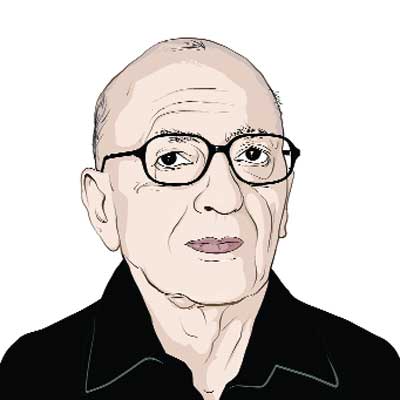Opinion The day we found out
The nation had to be told,finally,of the Chinese invasion and Indias ignominious retreat
Barely two days after he had begun the bizarre experiment of commanding from his sickbed in Delhi his troops a thousand miles away (Tough Words from Thagla,IE,August 1),Lt General Kaul hit the ceiling. For,on October 19,he received a sheaf of desperate messages from the front. These convinced him that both the GOC of the 4th Division,Major General Niranjan Prasad,and the commander of 7 Infantry Brigade,Brigadier John Dalvi,had panicked.
As Dalvi later recorded in his book Himalayan Blunder,he was personally watching the Chinese reinforcing their strength at Thagla and their units moving to battle locations,which they had reconnoitered during the previous three days. Yet,he was under instructions to send some of his outnumbered men to Tsangle (a position to the north of the Namkachu river,considered indefensible by Dalvi,Prasad and others) and denied permission to withdraw even a part of his formation from the river line to higher,more defensible spots. Dalvi was communicating these worries,with an undercurrent of protest,to Prasad,who was passing them on to Kaul.
So appalled was Dalvi that seven years after the event he wrote: October 19 (1962) was the low water-mark of the post-Independence Indian army… On that evening,7 Brigade was squarely in the Chinese trap… but there was deplorable apathy (at the level of the higher command) in deciphering Chinese intentions.
In New Delhi on the same evening,the director of military operations (DMO),Brigadier Palit,knew nothing about these goings-on. Evidently,the army headquarters was not in the loop. So he went to Kauls residence in search of information. On arrival he found that the usual trio of Krishna Menon,Army Chief Thapar and Intelligence Chief Mullik,was already there,sitting by the corps commanders bedside.
Before he could leave,Thapar came out and handed him a draft signal to the HQ IV Corps to be dispatched at the highest priority. According to Palits version,later confirmed by several other sources,it was a hotchpotch of instructions to move companies and platoons to Tsangle and other locations,and advice on how to fight a brigade battle in the Namkachu valley. It was another embittering anti-climax; by then I should have grown accustomed to them.
As Thapar was about to drive away,Palit signalled to the driver to stop,and did something that was unusual even for him. He explains that it must have been the strain in him,which made him force his views on his chief and seek his permission to amend the draft signal somewhat. Thapar patiently heard him argue that the most important requirement at that time was to order a pull-back from the river line in Namkachu to Tsangdhar and Hathungla. Palit emphasised that this would not amount to withdrawal in the military sense of the term,only a re-disposition of defences from an un-tactical to tactical deployment… Now that the Chinese were building up for an attack,the brigade should be allowed to re-dispose the defences… on ground of its own choosing.
The army chiefs patience was visibly running out. Even so,he did not tell his DMO to shut up. For his part,Palit repeated his request for permission to amend the draft signal. Gently,Thapar replied: Its too late. The message has,in fact,been sent,informally by telephone,a half-hour ago. So frustrated,indeed devastated,was Palit that he decided not to go back to his office to dispatch the highest priority signal. To delay it until the next morning,he told himself,would make no difference. How right he was!
For,at first light on October 20,China launched its massive and comprehensive attack from Kibithoo in the Walong sector of NEFA on the India-Burma border,through the main target in the Kameng divisions where lie both Thagla and the Namkachu valley,right up to the Chip Chap and Galwan valleys of Ladakh. The moment of truth,long considered improbable,if not impossible,had arrived.
The rest of the country knew nothing of the catastrophe that was unfolding in the high Himalayas since dawn because nobody in authority said a word about it for hours. It was after 11 am that we first heard that something disastrous had happened around Thagla. Under Krishna Menons instructions,the ministry of defence (MoD) called in only the two news agencies and gave them a bald statement to the effect that China had invaded both NEFA and Ladakh.
The entire press,Indian and foreign,was up in arms,demanding as to why,at the juncture when the biggest and saddest news of the Chinese attack had broken,the MoD had avoided the normal practice of holding a briefing for the entire press corps. The answer was obvious: the government was yet prepared to face searching questions. Since there was no 24×7 TV those days and All India Radio was wholly government-controlled,there was no to know what was going on. Ironically,even the DMO was often dependent on Mullik of the Intelligence Bureau for information. The reason for this,apart from paralysing dismay and disarray at the HQ IV Corps,was that all army signals had to be first coded by the senders and then decoded by the recipients. Mulliks network on the spot was sending its messages en clear.
It was only after 6 pm,when the foreign secretary of the day,M.J. Desai,addressed a press conference,that the mind-boggling enormity of the Chinese advance and Indian defeat and retreat began to sink in. There was some consternation among his audience when Desai announced that not only the much-bruited Dhola post but also every other post and formation that came in the way of the Chinese had been overrun. When asked why,he admitted that the Chinese were more numerous,thoroughly acclimatised to great heights,better supplied and better armed. They had modern,automatic weapons while our soldiers had only Enfield .303 rifle of World War I vintage. He remained silent,however,about the incredibly appalling planning by policy-makers in Delhi and military leaders in the field.
The writer is a Delhi-based political commentator




